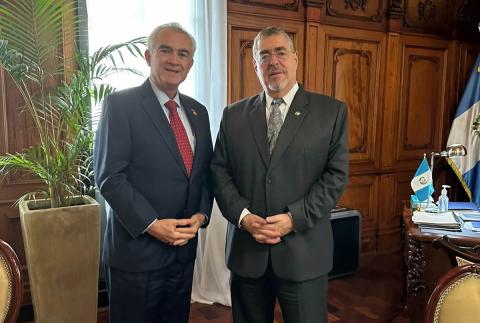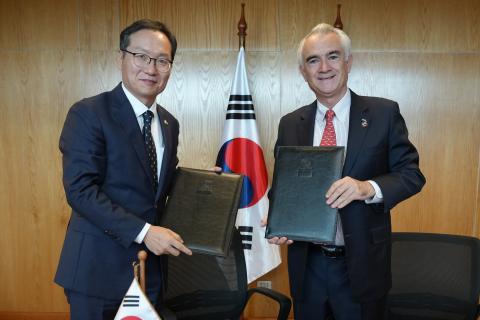Press Release
Access to energy is one of the most serious challenges faced by the Caribbean. As a result, it is important for the subregion to improve energy efficiency as well as to promote the use of alternative sources of energy. Energy efficiency (EE) and renewable energy (RE) are especially relevant to the Caribbean since the subregion holds substantial renewable energy potential in relation to solar, wind and geothermal energy, but remains highly dependent on fossil imports for its energy needs.
The last decade has seen an impressive evolution in the development and application of energy efficiency (EE) and renewable energy(RE) technologies. For instance, in its 2014-2015 report, the International Renewable Energy Agency (IRENA) notes that globally renewable energy power capacity has grown by over 85 per cent over the past 10 years. Additionally, IRENA analyses have shown a decline in the cost of renewable energy technologies by more than 70 per cent over the period, thereby now making it possible to provide competitive utility scale electricity services from renewable sources in many countries. In terms of investments, over US$270 billion were invested in renewable energy technologies in 2014, which representsa 15 per cent increase compared to 2013, and more than five times that of the early 2000s. According to IRENA, the global energy transition has also stimulated widespread socio-economic benefits, through the adoption of some form of renewable energy technology in 164 countries as at mid-2015, with as many as 7.7 million jobs already created from EE and RE activities as of 2015.
The Economic Commission for Latin America and the Caribbean’s (ECLAC) engagement with countries and stakeholders has revealed tangible evidence to show that aspects of this energy revolution are also taking place in our subregion. Antigua and Barbuda recently completed the installation of its first solar power plant, with similar initiatives already operational in Saint Kitts and Nevis, and Aruba. Wind farms already dot the pristine Caribbean landscape in Jamaica, Aruba and Nevis, while both commercial and residential application of solar water heating is common place in Barbados, Saint Lucia and Grenada. The use of mini-hydro power plants is now a proven technology in Saint Vincent and the Grenadines; while Dominica and Saint Kitts and Nevis are on the way to tapping their geothermal sources of energy. The application of Ocean Thermal Energy Conversion technologies is receiving serious consideration in the Cayman Islands, and many other regional economies are already showing signs of gearing themselves to confront these changes.
Countries have also undertaken institutional, regulatory and policy reforms. Among such adjustments are the decoupling of power generation and transmission in order to accommodate independent power producers; strengthening of utility regulatory frameworks; adjustment of energy metering and pricing strategies; and changes in the fiscal and incentive regimes, especially with respect to energy use for transportation.
While many Caribbean countries have joined the global transition towards sustainable energy, thisis such a broad and all-encompassing subject that comprehensive energy policies are required in order to accomplish sustainable and clean energy security. Energy efficiency and renewable energy should be guiding principles to improve the performance of the transport sector, to reassess the process of transportation and distribution of water, to address the complex nature of the water-food-energy nexus and, in general, to improve efficiency in consumption behaviors and production patterns.
ECLAC recognizes that the global winds of change in energy provide us with a golden opportunity to broaden and deepen our support in the area of the socio-economics of energy in the subregion. Supported by the SIDS Accelerated Modalities Of Action (SAMOA) Pathway, the Sustainable Development Goals ─ ensure access to affordable, reliable, sustainable and modern energy for all ─, the Paris Agreement and other instruments of the 2030 Development Agenda, ECLAC reaffirms its commitment to substantially engage its member states and partners to better prepare our region to confront questions such as the macro-economic implications of the global energy transition; the potential fiscal and monetary impacts; likely result on balance of payments and trade; implications for foreign and domestic investments; and the welfare effects of energy changes particularly on the poor and vulnerable in our societies.


